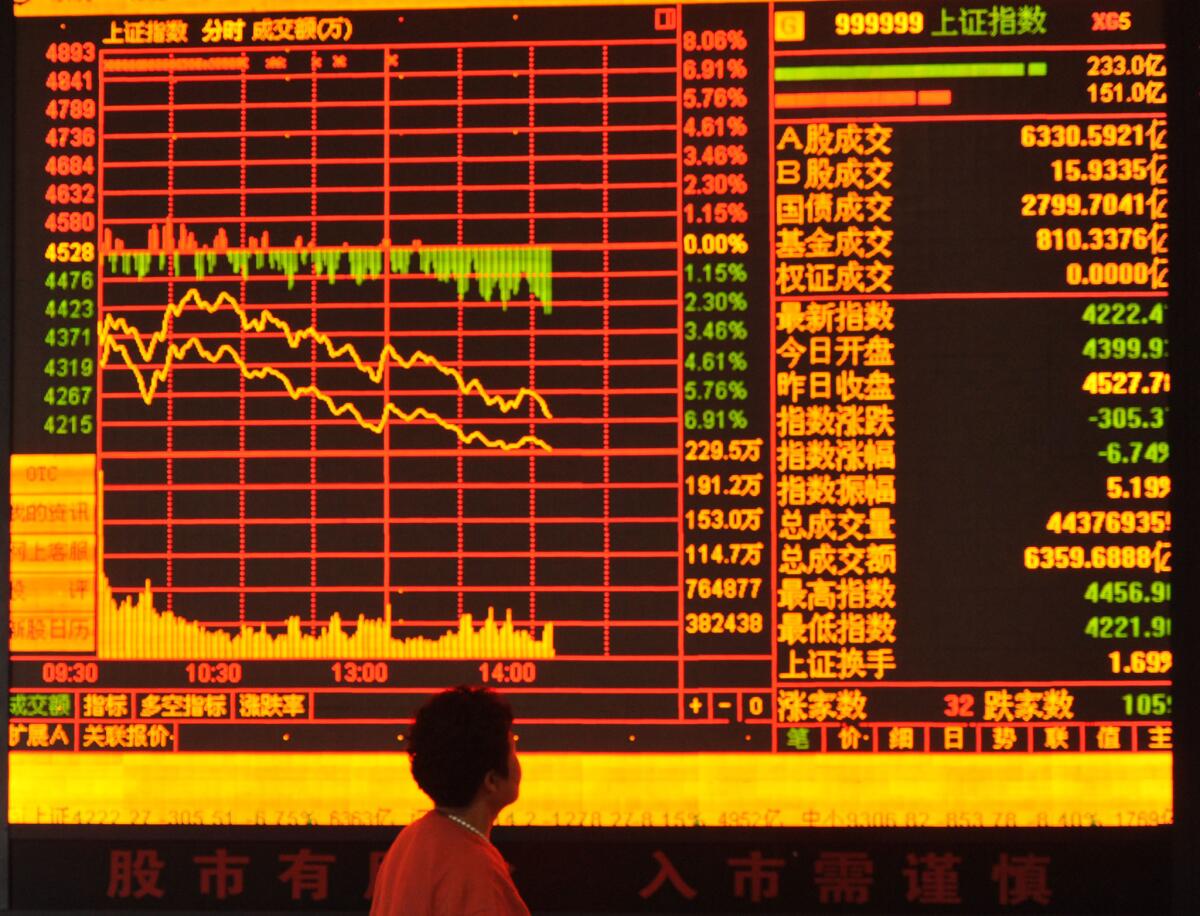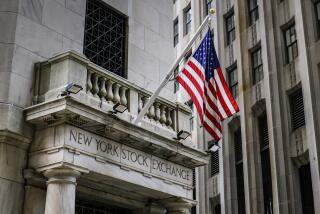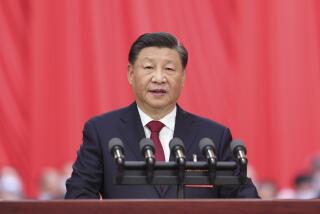U.S. investors are not heavily invested in tanking Chinese markets

An investor observes the stock market at a stock exchange hall in China. Analysts said the recent stock market plunge there will have indirect effects on the U.S. economy.
U.S. investors have few direct links to the flagging Chinese stock market, but the indirect fallout from the plunge in the Asian giant’s benchmark index could be protracted and painful for parts of the U.S. economy, experts said.
Typical retail investors in the U.S. tend to have a home bias — they invest in domestic names they know.
Their exposure to China comes through emerging markets funds, which tend to take up roughly 5% of the typical portfolio, said Patricia Oey, a senior analyst with Morningstar. And such funds usually stick to shares listed in Hong Kong rather than via the mainland Shanghai composite index, which has dropped by a third since mid-June after gaining spectacularly since last summer, she said.
“The impact is pretty muted” for most American investors, Oey said.
Another key difference in China’s markets: They are not as connected to the nation’s underlying economy, said David Doyle, an analyst with Macquarie Capital Markets.
Chinese households generally have less than 10% of their net worth tied up in stocks, he said. Corporations, many of which are state-owned, tend to rely on banks instead of shares to fund their expansion plans.
The Shanghai composite is still up from a year ago despite the recent plunge.
“We don’t think this slide is indicative of some huge blowup in China’s economy,” Doyle said. “If China’s growth really collapsed and turned into layoffs in the U.S., that could be something to be concerned about.”
The current strength in the U.S. economy is driven not so much by overseas investment but by local consumer spending, he said.
The Chinese government is implementing aggressive emergency measures designed to reverse or buffer the stock market slide — a tactic analysts call a kitchen sink approach. The intensity of the efforts has many investors concerned.
“The direct links to the Chinese market here are pretty thin, but the indirect links may be substantial,” said Wells Fargo senior economist Mark Vitner. “It makes folks nervous, this feeling that all’s not well in the world.”
If the Shanghai stock market free fall rattles the overall Chinese economy, the dollar could continue to strengthen, hurting exports out of major American trade gateways such as Los Angeles, Vitner said.
The domestic real estate market, which has enjoyed a flood of Chinese buyers snapping up residential and commercial properties all over the West Coast, could also suffer, he said.
The global commodity markets are already feeling the pinch as prices collapse for copper, scrap steel, oil and iron ore, Vitner said.
“Most of the growth in major industrial commodities has been in China,” he said. “If China’s economy slows, demand for all of those commodities will slow.”
The nation has seen its furious growth pace lag recently, and U.S. businesses with ties to China have begun scaling back production and investment there.
“If investors suddenly become less optimistic about China’s long-term prospects, they may pull back on stocks,” Vitner said.
Twitter: @tiffhsulatimes
More to Read
Inside the business of entertainment
The Wide Shot brings you news, analysis and insights on everything from streaming wars to production — and what it all means for the future.
You may occasionally receive promotional content from the Los Angeles Times.










